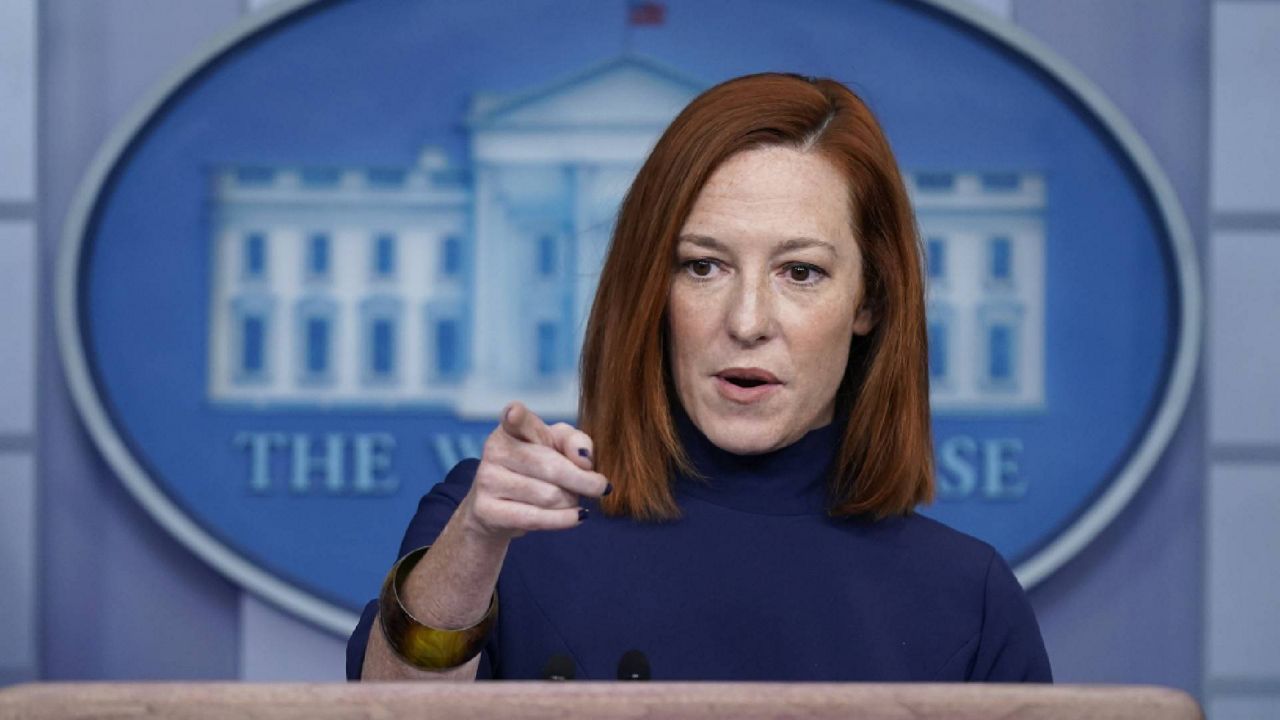White House Press Secretary Jen Psaki gave an update on the administration’s effort to pass President Joe Biden's proposed $1.9 trillion economic relief bill on Monday, which she said is now likely to happen through a budget process that would allow Democrats to push the package through without Republican support in the Senate.
Psaki also addressed the effort to include an increase in the minimum wage to $15 in the relief deal. In a Friday interview, President Biden said he didn’t think it was "going to survive" the process.
“The President remains firmly committed to raising the minimum wage to $15. That's why he put it in his first legislative proposal,” Psaki said in a White House briefing Monday. “There is a parliamentarian who will make decisions about what can end up in a final package.”
Passing a bill through budget reconciliation – which is now the relief package’s likely path – requires only a simple majority to pass and isn’t subject to the filibuster, but senators can move to block "extraneous" parts of the legislation that don’t focus on the budget.
The Senate parliamentarian – Elizabeth MacDonough, who has held the role since 2012 – ultimately decides what stays or goes.
"We'll see what the parliamentarian decides. And then we'll see what additional options are." Psaki added Monday.
The minimum wage hike would raise 900,000 Americans above the poverty line, a new Congressional Budget Office report said, but it could also eliminate 1.4 million jobs and increase the federal budget deficit by $54 billion by 2031.
House committees are set to begin marking up Biden’s American Rescue Plan this week, and the administration has made it a goal to pass the bill in early March.
Another remaining point of negotiation is the income threshold for the $1,400 checks that President Biden included as a way to round out his promise of $2,000 stimulus payments, after a round of $600 checks late last year.
But some Republicans and experts have called on the administration to send checks in a more targeted way by only giving them to lower income families who are likely to need the money most.
President Biden has said he’s open to a new threshold. One proposal would send the $1,400 checks to people making $50,000 or less per year, or $100,000 for couples.
The previous round of checks phased the payments out at $75,000 and sent some money to people earning up to $87,000.
"There's a discussion right now about what that threshold will look like. A conclusion hasn't been finalized," Psaki said Monday. "But whatever the threshold is, there will be a scale up. So his view is that a nurse, a teacher, a firefighter who is making $60,000 shouldn't be left without any support or relief, either."
The press secretary pointed to recent polls as evidence of the bipartisan support for the president’s $1.9 trillion relief deal. But it is unlikely to get broad Republican support in Congress, despite President Biden’s promise of unity under his administration.
A group of Republican senators, who Biden met with last week, have proposed their own $618 coronavirus relief package, which would not include money for states and would significantly narrow stimulus payments for Americans.
Both President Biden’s bill and the Republican proposal include additional funding for things like testing and vaccine distribution.



